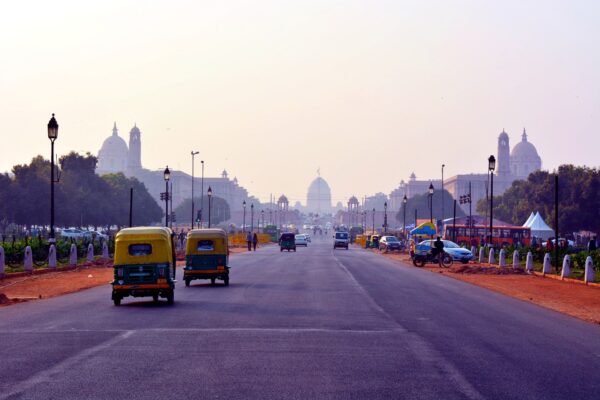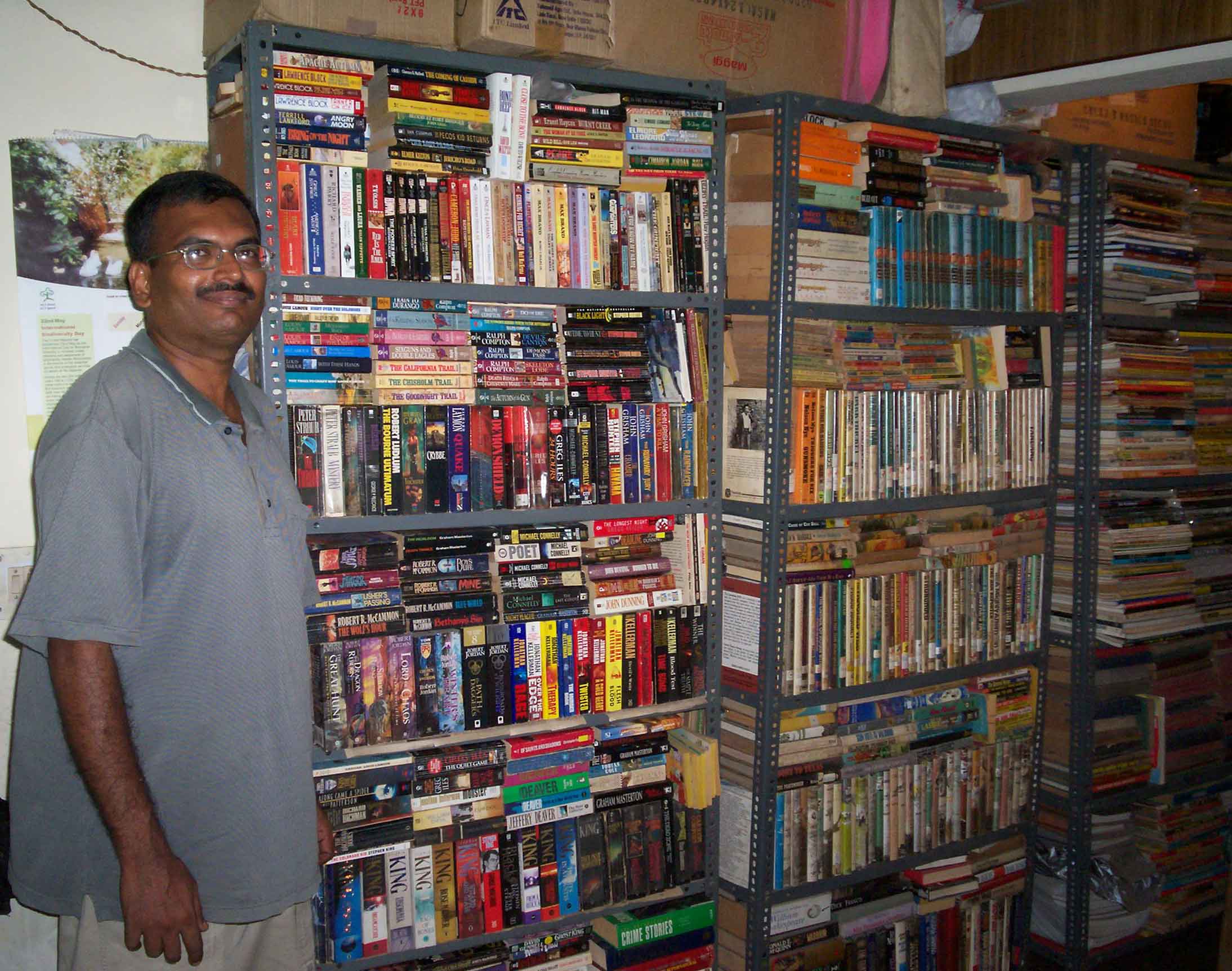By Ashok R. Chandran
The Hindu (Thiruvananthapuram)
CHANGES IN SOCIETY, politics, economy, technology and culture are often evolutionary. And their incremental nature makes it difficult for us to assign dates. Year 2003 was not a defining date in Kerala history, unlike ‘9/11’ for the U.S., or 1989 for Europe. For Kerala society, 2003 began with hope, but turned out to be a year of discontent. In key fields we could discern three undercurrents in the State: the rise of a ‘selling society’, a crisis of ideas, and reconfiguration of the public sphere.
‘Selling Society’
Kerala’s economists and sociologists portray the State as a huge shopping mall. Academics conclude that Keralites are consumerist, i.e., buyers who do not invest, produce and sell. There is another trend that smarter scholars have taken note of—emergence of Kerala as a selling society.
Take the case of Technopark, set up in 1991. You may not have heard of its revolutionary management culture, or noticed its impressive labour relations record. The people behind it probably believed that after a while, results would lead to publicity. What about Akshaya, launched in 2003? Within seconds, your mind has zipped through Chamaravattom, India’s first e-literate village, Muslim women and other images of ‘success’.
The IT Mission does not wait three years for an evaluation of Akshaya’s business model. The people behind it realise the importance of creating a feel-good atmosphere early on. At the Global Investor Meet (GIM) in January at Kochi, the Government showcased Kerala as the ‘Land of Infinite Opportunity’. Thanks to effective public relations by the Kerala State Industrial Development Corporation (KSIDC), we also got a glimpse of the energy that went into the exercise.
To see the ‘selling society’ that Kerala has become, walk to the newest bakery in town.
But to see the ‘selling society’ that Kerala has become, walk to the newest bakery in town. Chances are that it will have a designer look—glittering signboards, well-lit racks, stylish decor, and a menu of exotic burgers and pizzas.
It is not just traders in Palakkad or Kottakkal who are selling in a striking fashion. Students in Thiruvananthapuram walk around in sweatshirts that proclaim the names of their college (or school). In Kochi, stars and sanyasins spearhead celebrations that reinforce their identity. Pick a few brochures, such as that of the Kerala State Chalachitra Academy, and you realise that the simple Malllu has given way to the smart, savvy one. As long as such selling is honest, it would be a mistake to look at the ‘selling society’ with disdain. Heritage tourism, for instance, thrives where people are creative and sell an experience to the visitor. Viewed thus, for a State that has identified tourism as a thrust area for development, marketing replacing Marxism is a sign of hope.
Crisis of Ideas
Yet on issues of development, the confusion continues. The Kerala Government and society believe that they are facing a financial crisis. But increasingly, it appears that Kerala lacks ideas, not money.
We can beg or borrow money, but cannot agree on how to invest it profitably.
We can beg or borrow money, but cannot agree on how to invest it profitably. Profit-making is viewed with scepticism. Leftist politicians are not the only ones roaring against privatisation; among the 39 lakh job seekers and their families, there is no social consensus on development issues. For every ‘agent of World Bank spewing imperialist agenda’, there is a ‘dogmatic Marxist attacking the windmills of globalisation’. The drama took a turn in 2003 with the entry of the xenophobic intellectual who fears not only the Asian Development Bank, but also comrades pushing decentralisation, ‘backed by CIA’.
The lack of consensus has meant more of the same—governance without vision, patronage politics, corruption and uncertain investment climate. The resulting frustration came to the fore this year at Muthanga. As the Adivasi Gothra Maha Sabha moved from democratic satyagraha to alleged violation of law, it propelled the Malayali’s faith in violence as a political tool.
Corruption in Kerala deepens public cynicism and lack of trust in leaders. It also produces plans for unsound projects and skews the implementation of reforms. The decision to extract ilmenite from black sand and the disputes in privatisation of professional education were cases in point.
The agricultural sector got ideas from M. S. Swaminathan Commission and was also cushioned by rise in rubber prices. The spread of vanilla cultivation showed the ability of Kerala farmers to flexibly respond to global demand. The socio-economic crisis was not an area of our attention because after GIM, we buried the development agenda in the cemetery of the public sphere.
The Public Sphere
The most visible aspect of Kerala’s changing society has been the transformation in the public sphere.
In politics, Kerala’s new public sphere gives legitimacy to the articulation of selfish and sectional interests. The politician of the ruling party publicly demands his ‘customary’ privileges at the local police station. Supremos of socio-economic groups do not meet Ministers in private; they arrange press conferences to apply political pressure.
In 2003, the Chief Minister shed political correctness and frankly expressed his views on organised minorities. Months later, he boldly withdrew corruption cases, allegedly, to cling to power.
The public face of religion is striking. Worshipping God or gurus of global empires, we participate in celebrations staged across by-lanes and highways. The State Secretariat becomes a place for assertion of religious identity as officials reportedly compete to install pictures of Gods and gurus. When the beach turned bloody at Marad this year, women threatened and abused women from ‘the other’ community, furniture disappeared, and wells were polluted. In Kerala’s new public sphere, to be communitarian is respectable, and to be communally partisan acceptable.
In the past, governments used to challenge organised bands that imposed hartals and strikes. In 2003, public bodies opted for band-aid solutions; they declared holidays and postponed examinations. Is crime, like corruption, becoming admissible?
To forge a social consensus, the chatterati demand inspiring leadership, honest intellectualism, and responsible mass media, but their voices do not go beyond the living room. Out in the public sphere, they seek divine intervention. Times have indeed changed.
Extra
This article was published throughout Kerala in a special, annual review section of the newspaper.
More newspaper articles by the author
Credits: Stock photo by Randy Jacob on Unsplash
Copyright © 2003 The Hindu




